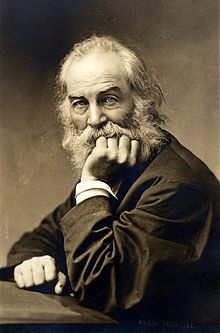Richard Rorty in Achieving Our Country from Delancey Place:
 John Dewey (1859-1952) was an American philosopher, psychologist, and educational reformer; Walt Whitman (1819-1892) an American poet, essayist, and journalist. Both hoped for a thoroughly secular “democracy” as a civic religion displacing conventional religion: Whitman and Dewey were among the prophets of [an American] civic religion. They offered a new account of what America was, in the hope of mobilizing Americans as political agents. The most striking feature of their redescription of our country is its thoroughgoing secularism. In the past, most of the stories that have incited nations to projects of self-improvement have been stories about their obligations to one or more gods. For much of European and American history, nations have asked themselves how they appear in the eyes of the Christian God. American exceptionalism has usually been a belief in special divine favor, as in the writings of Joseph Smith and Billy Graham.
John Dewey (1859-1952) was an American philosopher, psychologist, and educational reformer; Walt Whitman (1819-1892) an American poet, essayist, and journalist. Both hoped for a thoroughly secular “democracy” as a civic religion displacing conventional religion: Whitman and Dewey were among the prophets of [an American] civic religion. They offered a new account of what America was, in the hope of mobilizing Americans as political agents. The most striking feature of their redescription of our country is its thoroughgoing secularism. In the past, most of the stories that have incited nations to projects of self-improvement have been stories about their obligations to one or more gods. For much of European and American history, nations have asked themselves how they appear in the eyes of the Christian God. American exceptionalism has usually been a belief in special divine favor, as in the writings of Joseph Smith and Billy Graham.
“Dewey and Whitman wanted Americans to continue to think of themselves as exceptional, but both wanted to drop any reference to divine favor or wrath. They hoped to separate the fraternity and loving kindness urged by the Christian scriptures from the ideas of supernatural parentage, immortality, providence, and — most important — sin. They wanted Americans to take pride in what America might, all by itself and by its own lights, make of itself, rather than in America’s obedience to any authority — even the authority of God. Thus Whitman wrote:
And I call to mankind, Be not curious about God,
For I who am curious about each am not curious about God.
More here.
